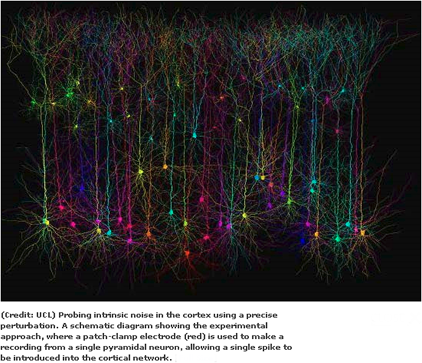 Just 11 hours of learning a meditation technique induces positive structural changes in brain connectivity by boosting efficiency in a part of the brain that helps a person regulate behavior in accordance with their goals, researchers report. [continue reading…]
Just 11 hours of learning a meditation technique induces positive structural changes in brain connectivity by boosting efficiency in a part of the brain that helps a person regulate behavior in accordance with their goals, researchers report. [continue reading…]
Neuroscience
An interesting article in the New York Times. Todd Braver, a psychology professor at Washington University in St. Louis, was one of five neuroscientists on an unusual journey. They spent a week in late May in a remote area of southern Utah, rafting the San Juan River, camping on the soft banks and hiking the tributary canyons.
It was a primitive trip with a sophisticated goal: to understand how heavy use of digital devices and other technology changes how we think and behave, and how a retreat into nature might reverse those effects. link to read more about this journey
Source: New York Times
 Next time your brain plays tricks on you, you have an excuse: according to new research by UCL scientists published today in the journal Nature, the brain is intrinsically unreliable.
Next time your brain plays tricks on you, you have an excuse: according to new research by UCL scientists published today in the journal Nature, the brain is intrinsically unreliable.
This may not seem surprising to most of us, but it has puzzled neuroscientists for decades. Given that the brain is the most powerful computing device known, how can it perform so well even though the behaviour of its circuits is variable?
A long-standing hypothesis is that the brain’s circuitry actually is reliable – and the apparently high variability is because your brain is engaged in many tasks simultaneously, which affect each other. [continue reading…]
“Half the money I spend on advertising is wasted; the trouble is I don’t know which half.”
— John Wanamaker, 19th-century U.S. department store pioneer
In a study with implications for the advertising industry and public health organizations, UCLA neuroscientists have shown they can use brain scanning to predict whether people will use sunscreen during a one-week period even better than the people themselves can.
“There is a very long history within psychology of people not being very good judges of what they will actually do in a future situation,” said the study’s senior author, Matthew Lieberman, a UCLA professor of psychology and of psychiatry and biobehavioral sciences. “Many people ‘decide’ to do things but then don’t do them.” [continue reading…]
